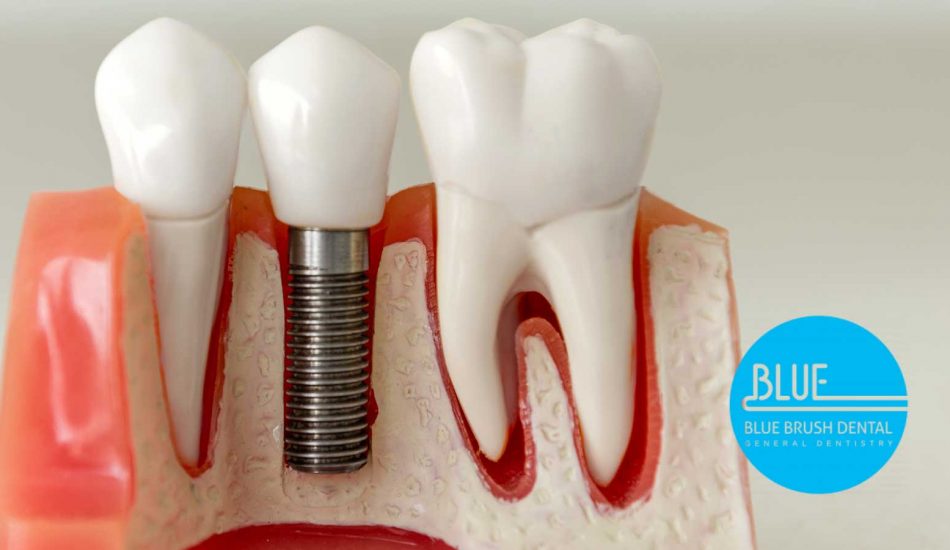One of the primary concerns for many when considering dental implants is the potential pain involved in the procedure. Pain can be a significant deterrent for those already dealing with discomfort due to missing teeth or ill-fitting dentures. This apprehension about pain often leads to anxiety, making it crucial to address these concerns with accurate information.
In this blog, we will explore and evaluate whether dental implant procedures are painful and provide insights into what to expect at each stage.
Pain Expectations During Different Stages of Dental Implant Treatment
Understanding the pain expectations during the various stages of dental implant treatment can help alleviate anxiety and set realistic expectations. Each phase of the process involves different levels of discomfort, which can vary depending on individual factors such as pain tolerance and the complexity of the procedure.
Discomfort During the Implant Surgery
Patients generally experience minimal discomfort during dental implant surgery due to local anesthesia numbing the area. The procedure involves making a small incision in the gum to access the jawbone, where the implant is placed. While patients often feel pressure or vibrations, these sensations are usually not painful. Many people describe the experience as less distressing than expected, frequently comparing it to a routine dental filling. Overall, the surgery is quick, with most patients reporting that the process is far less intimidating than they initially feared.
Post-Operative Pain and Swelling
After the dental implant surgery, patients can expect some level of post-operative pain and swelling as the anesthesia wears off. This discomfort is typically mild to moderate and can be managed effectively with over-the-counter pain medications such as ibuprofen or acetaminophen. Swelling and bruising around the surgical site are common and may extend to the cheeks or face, peaking within the first 48 hours. Applying cold compresses can help reduce swelling and provide relief. Patients are usually advised to rest closely and follow their dentist’s post-operative care instructions to promote healing and minimize discomfort during the initial recovery period.
Sensations During the Healing and Osseointegration Phase
The healing and osseointegration phase, during which the implant integrates with the jawbone, usually spans several months and is marked by minimal discomfort. Most patients experience slight tenderness or sensitivity at the implant site as the bone gradually fuses. This process is crucial for the stability and long-term success of the dental implant. Maintaining proper oral hygiene and adhering to dietary recommendations can support the healing process and help prevent complications. Patients generally find this phase uneventful, with any mild sensations diminishing as healing progresses.
Potential Discomfort During Abutment Placement
Once the osseointegration phase is complete, an abutment is attached to the implant to connect it to the eventual dental crown. This minor procedure is typically performed under local anesthesia and involves making a small incision in the gum tissue to expose the implant. Although the procedure is straightforward, some patients may experience slight discomfort or tenderness afterward, similar to the sensation after a routine dental cleaning.
Common pointers for this procedure are:
- Local anesthesia is usually sufficient to ensure a pain-free procedure.
- Tenderness around the site is common but typically mild.
- Sutures might be needed to secure the gum tissue, though discomfort is minimal.
- Pain management can include over-the-counter pain relievers if necessary.
- Recovery is generally quick, with most patients returning to normal activities shortly.
While minor soreness may occur, it is generally short-lived, and patients can typically resume their regular routines within a day or two. Following any post-procedure care instructions is essential to ensure optimal healing and comfort.
Adjusting to the New Implant and Crown
After the final dental crown is attached to the abutment, it may take some time to adjust to the feel of the new implant. Initially, you might experience minor sensitivity or discomfort as your mouth adapts to the presence of the crown, similar to getting used to a new filling or orthodontic appliance. This adjustment period varies for each individual, with most people finding that their mouth accommodates the implant within a few weeks. During this time, it’s essential to maintain good oral hygiene practices and follow any dietary recommendations to protect the implant and ensure its long-term success. With proper care, the dental implant will eventually feel and function like a natural tooth, providing a comfortable and durable solution for missing teeth.
Factors Influencing Pain Levels in Dental Implant Procedures

Pain levels during dental implant procedures can vary significantly among patients, influenced by several key factors. Understanding these factors can help set realistic expectations and guide effective pain management strategies.
Individual Pain Tolerance and Sensitivity
Everyone experiences pain differently, and individual pain tolerance plays a significant role in how one perceives discomfort during dental implant procedures. Some people have a naturally higher pain tolerance and might only experience mild discomfort, while others may find the sensations more intense. Additionally, personal sensitivity to dental work, prior experiences, and anxiety levels can also influence how a patient perceives pain. It’s important to communicate openly with your dentist about any concerns or past experiences so they can tailor their approach to your comfort.
Extent of the Dental Work Required
The scope of dental work involved in the implant procedure can also impact pain levels. Patients requiring extensive treatment, such as multiple implants or additional procedures like bone grafts or sinus lifts, may experience more discomfort. These supplementary procedures can add complexity to the treatment, increasing the potential for post-operative pain and swelling. However, advancements in dental techniques and pain management have made it possible to manage discomfort effectively, even in more involved cases. Clear communication with your dental team about the extent of work required can help you prepare for the procedure and its associated recovery.
Bone Density and Quality
Bone density and quality are critical factors in determining dental implant procedures’ success and comfort level. Patients with good bone quality typically experience smoother surgeries and faster healing times. Conversely, those with low bone density may require additional procedures like bone grafts, which can increase discomfort.
Key pointers to consider for bone density and quality include:
- Bone grafting may be necessary for patients with insufficient bone.
- Healing times can be longer for patients undergoing additional procedures.
- Stable bone structure often leads to less post-operative pain.
- Quality assessment helps dentists tailor the procedure for optimal outcomes.
As mentioned, a thorough pre-surgical evaluation of bone health helps plan the procedure and set realistic expectations for recovery. Dentists can offer solutions to improve bone quality, such as grafting, to support the implant and enhance comfort.
Surgical Technique and Dentist’s Expertise
The surgical technique used during the implant procedure significantly affects pain levels and recovery. Minimally invasive techniques that focus on reducing tissue trauma can lead to less discomfort and faster healing. The dentist’s skill and experience in implant procedures, including their capability as an emergency dentist, also play a vital role in minimizing pain. A well-executed technique can result in less swelling, reduced bleeding, and a quicker return to normal activities. Choosing a dentist who stays updated on the latest techniques, has a track record of successful implant placements, and can handle emergencies is essential. This choice can significantly influence your comfort and the overall success of the implant.
Managing Pain and Discomfort Throughout the Implant Process
Effectively managing pain and discomfort during dental implants is essential for a positive experience and successful recovery. By understanding the strategies available for each stage of the treatment, you can minimize pain and facilitate a smoother healing process.
Pre-Operative Pain Management Strategies
Effective pre-operative pain management strategies can significantly reduce anxiety and discomfort when preparing for dental implant surgery. It’s important to discuss any concerns with your dentist, who can guide you on what to expect and how to manage any pre-surgery anxiety or pain.
The following pre-operative pain management strategies you must consider are:
- Pre-surgery medications can include anti-inflammatory drugs to reduce swelling.
- Relaxation techniques, such as deep breathing or meditation, can help manage anxiety.
- Nutritional supplements may be recommended to support healing.
- Clear communication with your dentist ensures you have all the necessary information.
Your dentist might suggest specific exercises or dietary adjustments to optimize your body’s readiness for surgery. Being well-prepared can make the experience less daunting and more manageable, enhancing your comfort before the procedure.
Immediate Post-Surgical Pain Relief Methods
Once the dental implant surgery is complete, managing pain immediately afterward is crucial. Most patients experience some level of discomfort as the anesthesia wears off, but this can be effectively controlled with prescribed medications. Over-the-counter pain relievers, such as ibuprofen or acetaminophen, are often recommended to alleviate pain and reduce swelling. Applying cold compresses to the affected area can help minimize swelling and provide additional relief.
It’s essential to follow your dentist’s post-operative care instructions closely, including taking prescribed antibiotics to prevent infection and maintaining a soft diet to avoid putting pressure on the surgical site. Finally, rest is critical during the first few days to allow your body to heal and adjust to the new implant.
When to Seek Professional Help for Persistent Pain
While some discomfort is normal after dental implant surgery, persistent or severe pain should not be ignored. If you experience intense pain that doesn’t improve with medication, it’s crucial to contact your dentist promptly. Persistent pain could indicate an infection, implant failure, or other complications that require professional intervention.
Additionally, if you notice signs of infection, such as increased swelling, redness, or discharge, seek help immediately. Your dental insurance may cover follow-up appointments and necessary treatments to address any issues. Early detection and treatment of problems can prevent further complications and ensure the long-term success of your dental implant. Always communicate openly with your dental care provider to receive the best possible care.
Comparing Dental Implant Pain to Other Dental Procedures
Comparing the pain level with other common dental procedures is helpful when considering dental implants. Understanding these differences can provide context and help you prepare for what to expect in terms of discomfort and recovery.
Dental Implants vs. Tooth Extraction Pain
Many people find dental implant surgery less painful than a tooth extraction. Patients may experience significant discomfort during a tooth extraction as the tooth is removed from its socket, significantly if it is impacted. In contrast, dental implant surgery is often less invasive, focusing on precise placement rather than removal. Local anesthesia effectively numbs the area for both procedures, but post-operative pain from extractions can be more intense and prolonged. Extractions often involve more swelling and bleeding, requiring a longer recovery period. Patients frequently report that recovery from dental implant surgery is smoother, with less intense pain than extractions.
Dental Implants vs. Root Canals
Root canals are typically performed to remove infected tissue within a tooth, which can be painful before the procedure begins. While a root canal is generally more painful before the procedure, dental implants tend to have less pain afterward. During a root canal, the patient might feel pressure and discomfort despite anesthesia, especially if the infection is severe. Post-procedure, a root canal can leave the area tender as the infection subsides and the tooth heals. In contrast, the pain from dental implants is often more related to the surgical process and subsides as the implant integrates with the jawbone. Most patients find the controlled surgical environment of dental implants to be less daunting than the anxiety and pain associated with root canal treatment.
Dental Implants vs. Dentures and Bridges
Dental implants, dentures, and the dental bridge procedure all provide effective solutions for replacing missing teeth, but they involve different levels of discomfort. Both implants and the dental bridge procedure offer minimal pain. Implants require surgery, leading to some initial discomfort as they integrate with the jawbone, but this pain is typically manageable and decreases over time. In contrast, the dental bridge procedure involves reshaping adjacent teeth, which may cause temporary sensitivity. Dentures, while not requiring surgery, can initially cause sore spots and require adjustments for comfort. Each option involves minimal pain, but dental implants offer superior long-term stability and functionality.
Choosing the Right Dental Clinic for a Comfortable Implant Experience

Selecting the right dental clinic is crucial for a successful and comfortable dental implant experience. This is where our clinic comes into play.
Blue Brush Dental prioritizes patient comfort and satisfaction by providing personalized care and the latest dental technology. Our team is committed to making your implant journey as smooth and stress-free as possible. Choosing a dental clinic can be overwhelming, so we strive to offer exceptional service and ensure you feel at ease. Don’t wait to achieve the smile you’ve always wanted. Call us today to schedule your consultation and take the first step toward a healthier, more confident you.


